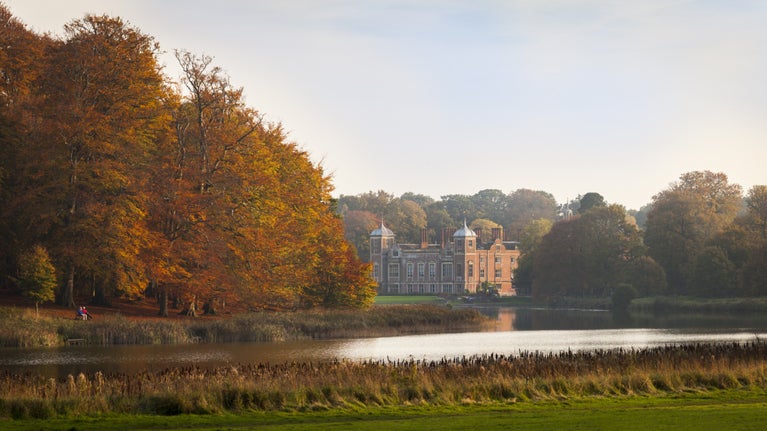
For everyone, for ever
We protect and care for places so people and nature can thrive. Find out who we are and what we stand for.

The places we love are facing pressures like never before, through climate change, pollution and poor water management. But we can all help by making small changes in our own lives. Learn more about our work to protect precious coasts and rivers for wildlife and people, and what you can do to help.
As an island nation, we have a strong connection to the coast, in fact no one in the UK lives more than 75 miles from the sea. For centuries, our beaches have provided us with relaxation, adventure, and inspiration and our seas are a sanctuary for wildlife and home to thousands of species.
Rivers are also a vital part of our natural world. They are the corridors which feed our landscapes, where our wildlife and plant communities thrive. They provide water for us to drink as well as for crops to grow.
One way we can help our rivers and seas is to use less water in our daily lives. We've come up with some simple ways you can reduce your water use.
Think about ‘embedded water’. It can take nearly 3,000 litres of waters to make just one T-shirt sold on the high street. You could save water by buying less or buying second hand.
Undertake the 4-minute shower challenge and use one song during your shower. You could also buy a shower head that gives you the feel of a high-pressure shower but uses less water.
Choose a low flush toilet if you’re refitting the bathroom. Toilets made before 2001 use up to three times more water than new models. Also, check your toilet isn’t leaking by looking at the back of the bowl 30 minutes after flushing. If it’s still wet and ‘running’ then you have a leak. Across the UK this accounts for up to 400 million litres of water a day.
Every single piece of plastic ever created still exists in some form today. Since its invention over 8 billion tonnes of plastic have been produced worldwide, and over 6 billion tonnes persist as waste. The majority accumulates in landfills, or ends up as pollution in rivers, seas, and land. The good news is that we can all do something about it.

We’ll continuously seek to reduce, reuse and recycle single-use plastics to the maximum extent possible, working with our suppliers, industry and supporters to minimise our impact on the environment. Our starting point will always be to source non-single-use plastic wherever we can. To achieve maximum impact where single-use plastic remains a challenge, the National Trust Retail and Food and Beverage teams are joining the UK Plastics Pact.
The UK Plastics Pact is transforming the way that the UK makes, uses and disposes of plastic, creating a sustainable system for plastics using a circular approach. This means problematic plastics are eliminated and packaging is designed and made with recycled materials. They’re also easily collected, sorted and recycled into new packaging.
By joining the UK Plastics Pact, we’ll trial new business models and innovations with the aim of reducing the amount of packaging on our shelves in our retail shops and cafés.
Under the UK Plastics Pact targets we are committed to:
We continue to work with our plant suppliers for alternatives to single-use plastics in its plant nurseries and plant sales areas.
By working towards these targets, we’ll minimise our impact on the environment while continuing to provide a brilliant proposition to our supporters.
Cleaning up beach litter is important to prevent further damage to our marine and coastal wildlife. We have over 780 miles of coastline in our care, and organise regular clean-up events at UK beaches. Some of these are in partnership with organisations such as the Marine Conservation Society.
We need your help to make sure the places we love remain special. Kicking the plastic habit isn't always easy so we've come up with some top tips to help you cut down on plastic waste.


We protect and care for places so people and nature can thrive. Find out who we are and what we stand for.
Discover how we’re helping increase butterfly populations through habitat management and monitoring, and learn about the rare species we’re bringing back from the brink.

With support from the Government’s Green Recovery Challenge Fund, we're looking for ways to protect our environment and combat climate change. Find out more about the work we're doing.

Climate change is the single biggest threat to the places we care for. Take a look at our environmental pledges as we adapt, reduce carbon emissions and address the damage already done.

Discover how some of the special places in our care are harnessing the power of the sun to generate electricity and reduce their carbon footprints.

We’re tackling the threats of a changing coastline to safeguard the places you love. Find out how our teams are adapting their approach to our shifting shores.
